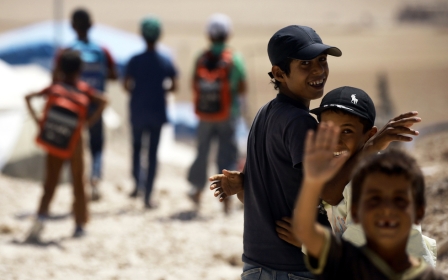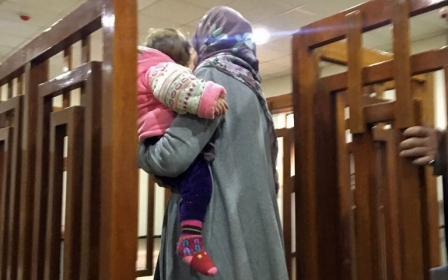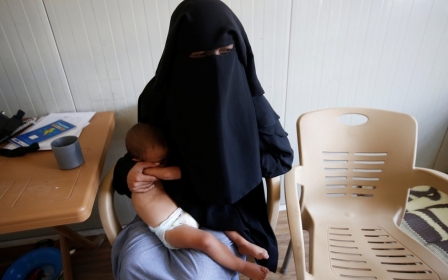Russian Islamic State militants' children returned home from Iraq

Thirty Russian children whose mothers are in prison in Iraq for belonging to the Islamic State (IS) group arrived on Sunday in Moscow from Baghdad, Russian authorities said.
The children, some appearing as young as three or four years old, were led through Baghdad's international airport to a Russian state plane to take them to Moscow, AP reported. Many of the girls wore headscarves and conservative garb. A few appeared anxious and afraid; others looked with wonder around the airport and appeared excited to fly.
The fathers of the children, aged three to 10 years old, are believed to have been killed in combat during Iraq's three-year war against the militants, a Russian diplomatic source told AFP before their plane departed.
"The plane of the Russian emergency situations ministry has landed," Chechen leader Ramzan Kadyrov said on his Telegram account, adding that it had touched down at Moscow's Zhukovsky airport.
Kadyrov said their arrival was "undeniable proof of the rigorous fulfillment of the mission set out by Russian President Vladimir Putin to save the women and children in Syria and Iraq".
"If we do not bring them home, they will become the target of the special services of other countries," he added.
Officials barred reporters from speaking to the children and did not provide any specifics about their cases. It is unclear who will take care of the children in Russia or where they will be resettled.
The children were taken to hospital on arrival for "thorough examinations", the news service of Russia's health ministry said according to Russia's Interfax news agency.
Kadyrov posted a video clip on the popular Russian network VKontakte of the children's departure from Baghdad, adding that 24 of them were from Dagestan, and another three were from Chechnya.
Several thousand Russians travelled to join the militants in their once sprawling "caliphate" straddling Syria and Iraq, according to estimates from the Russian security services.
Some took their families with them.
Since last year, about 100 women and children - mostly from Russia's Muslim-majority Caucasus - have returned under a programme championed by Kadyrov.
Still, in mid-November, Chechen activist Kheda Saratova accused Russia's FSB security service of blocking attempts to bring back the remaining widows and children of Russian IS militants.
"According to our organisation, there are over 2,000 of them left in Syria and Iraq," Saratova, who is on Kadyrov's human rights council, said at the time.
On Sunday, Iraqi Prime Minister Adel Abdel Mahdi held talks in Baghdad with Anna Kuznetsova, the Russian president's envoy for the rights of children.
During the meeting, Abdel Mahdi said a "distinction should be made between humanitarian issues and terrorist crimes", according to a statement from his office.
"These children are also victims," he added.
Kuznetsova's office said it had identified 123 Russian children in Iraq who required resettlement, and 699 Russian children across the region who had been "brought to the Middle East by their parents" and could also return to Russia.
More than 300 people, including around 100 foreigners, have been sentenced to death and many others to life imprisonment in Iraq for joining IS, the Sunni militant group which at its peak controlled almost a third of the country.
Baghdad declared victory against IS last December, but the militants maintain sleeper cells and have carried out periodic hit-and-run attacks.
New MEE newsletter: Jerusalem Dispatch
Sign up to get the latest insights and analysis on Israel-Palestine, alongside Turkey Unpacked and other MEE newsletters
Middle East Eye delivers independent and unrivalled coverage and analysis of the Middle East, North Africa and beyond. To learn more about republishing this content and the associated fees, please fill out this form. More about MEE can be found here.




